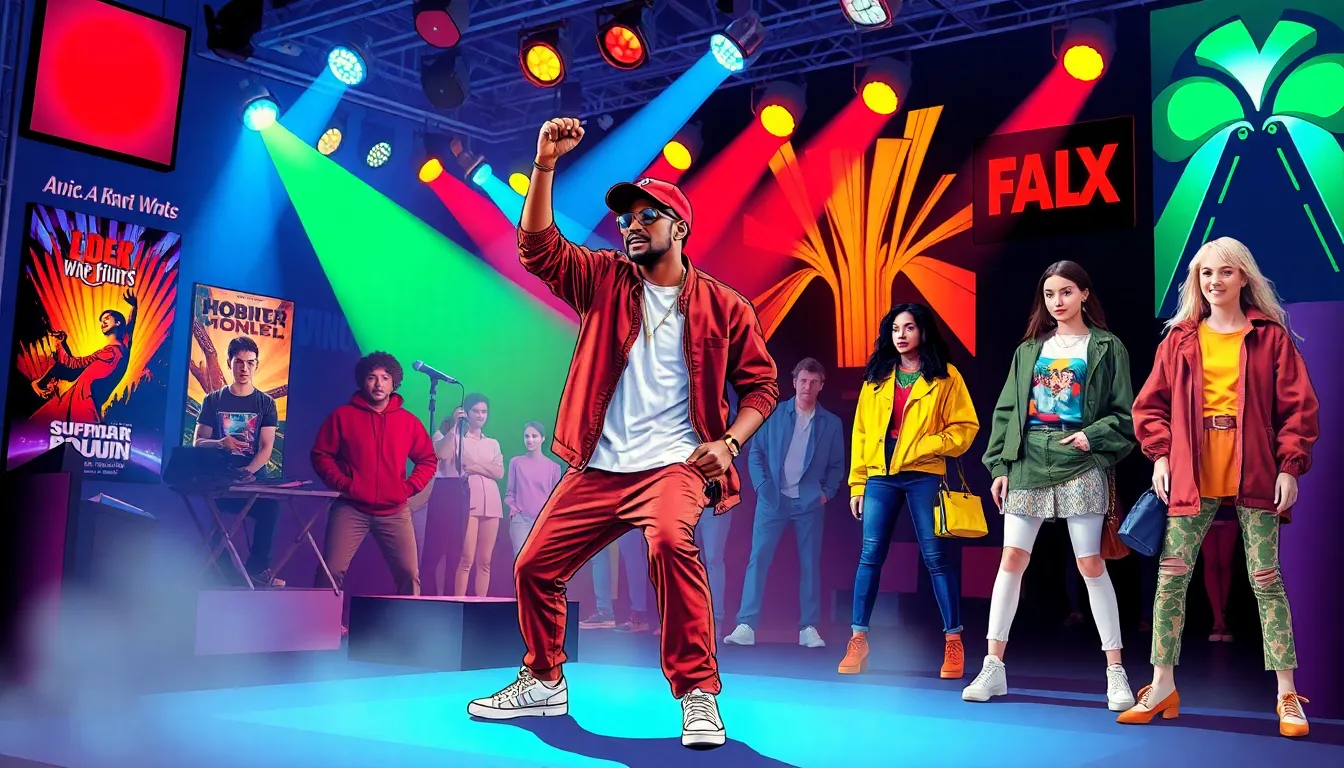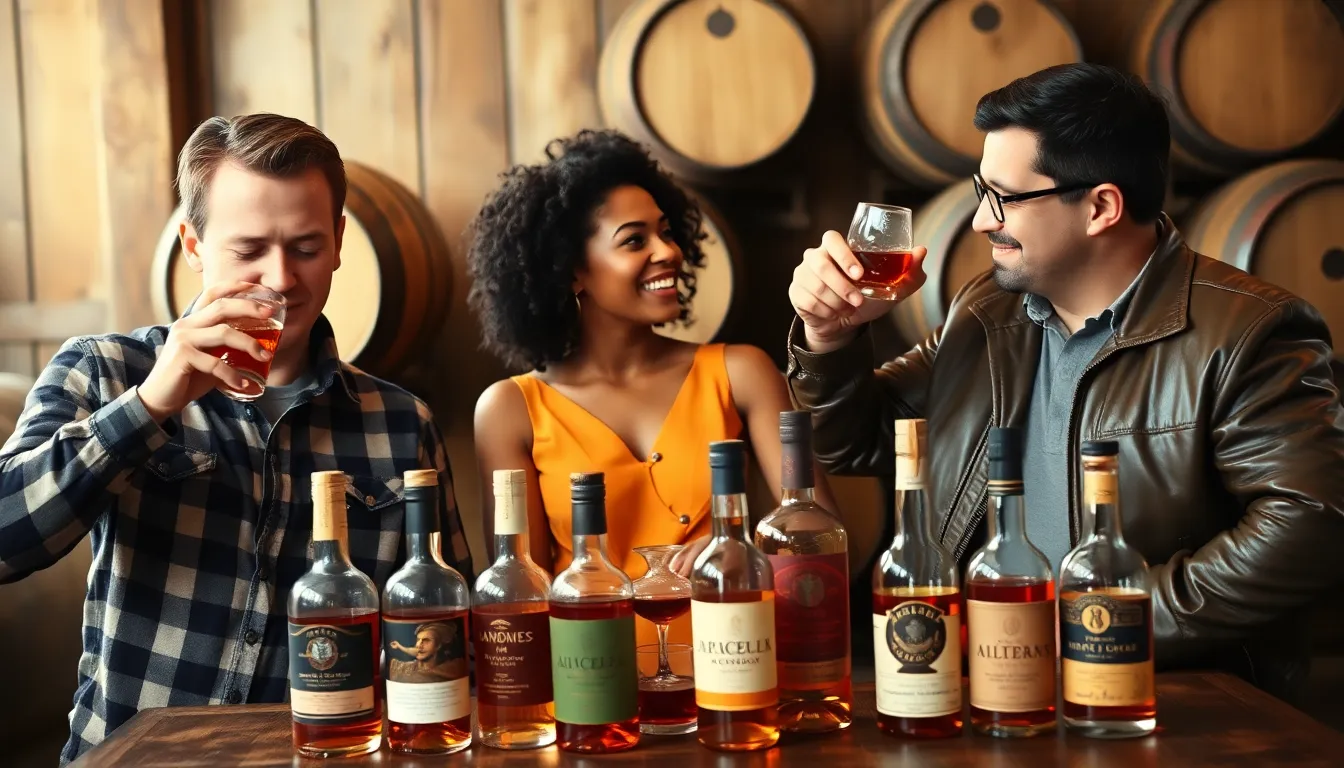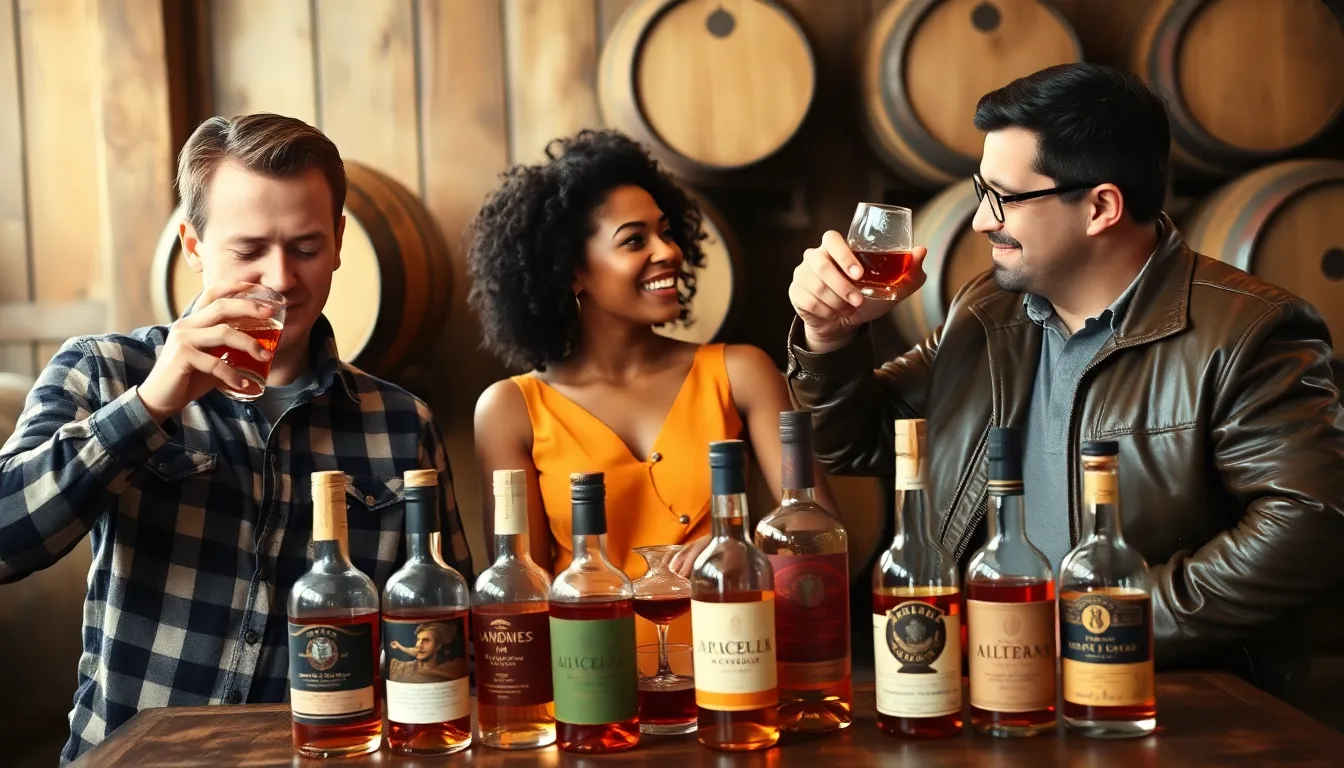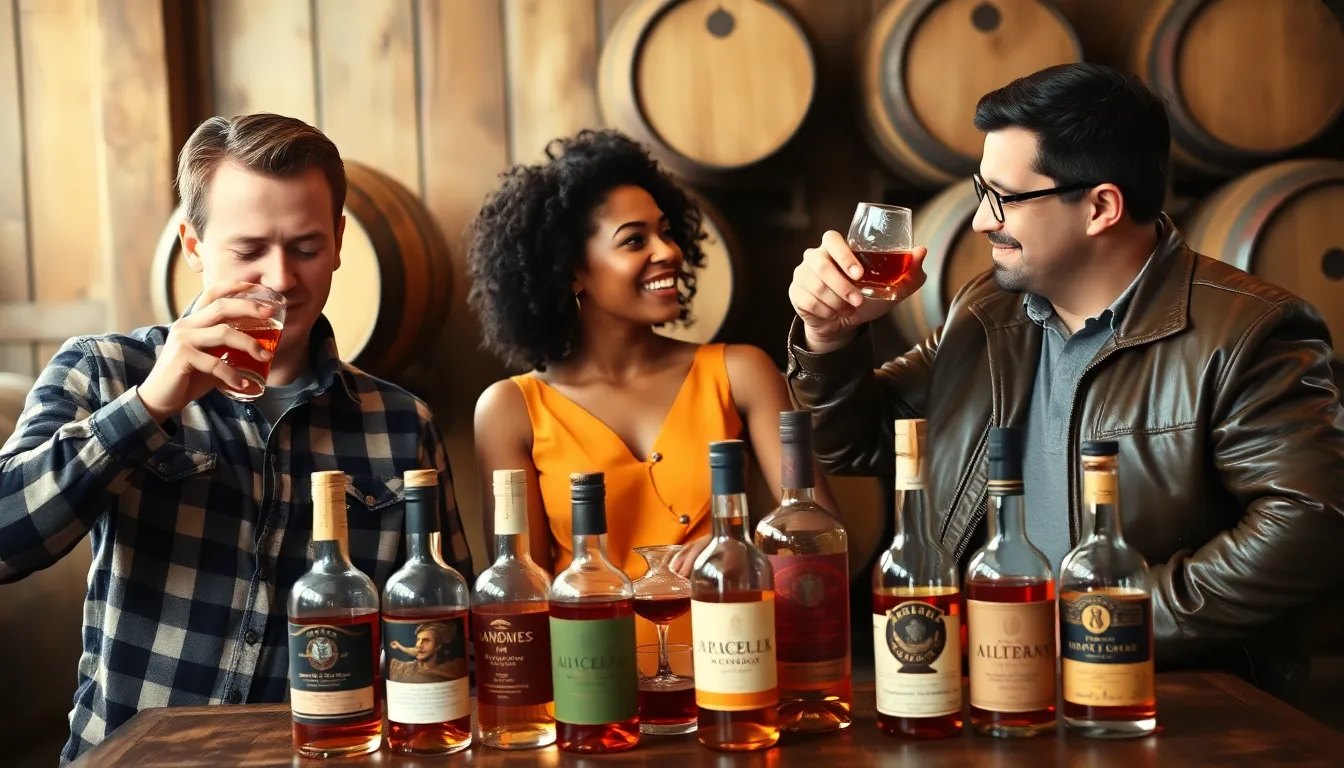Table of Contents
TogglePop culture shapes the world around us, influencing everything from fashion to language. It’s that delightful mix of trends, memes, and iconic moments that keeps society buzzing. Whether it’s the latest blockbuster film or a catchy song stuck in your head, pop culture has a way of bringing people together—often over a shared laugh or a collective eye roll.
What Is Pop Culture?
Pop culture, short for popular culture, refers to the ideas, perspectives, and trends that prevail within mainstream society. This dynamic phenomenon includes various forms of entertainment such as music, movies, television shows, fashion, and art. Cultural elements continuously evolve due to technological advancements, social movements, and collective interests.
Shared experiences often create a sense of belonging among individuals. Memes and viral trends amplify these connections, facilitating conversations across social media platforms. Iconic moments in pop culture, like groundbreaking film releases or hit songs, resonate with diverse groups, shaping their identities.
Music plays a vital role in pop culture, with genres evolving to reflect societal values. For instance, hip-hop emerged as a voice for underrepresented communities, influencing fashion and language. Movies and television also drive cultural discourse, with characters and storylines prompting discussions on important social issues.
Fashion trends frequently demonstrate the transient nature of pop culture. Styles often mirror societal sentiments, and designers draw inspiration from popular figures or events. In recent years, sustainability has gained traction, prompting consumers to consider ethical fashion choices.
Ultimately, pop culture serves as a reflection of contemporary society, capturing the hopes, fears, and aspirations of people. Its impact permeates daily life, sparking conversations and creating shared memories. Understanding pop culture helps individuals navigate a complex social landscape while fostering connections with others.
Key Elements of Best Pop Culture

Pop culture’s essence encapsulates various dynamic elements, fundamentally shaping society. Essential components include music trends, film and television highlights, and fashion statements.
Music Trends
Music trends reflect societal moods and values, with genres like hip-hop leading the charge. Artists use lyrics and beats to comment on contemporary issues, often driving conversations around social change. For example, pop and R&B artists collaborate across genres, creating hybrid sounds that resonate with diverse audiences. Streaming platforms amplify accessibility, allowing listeners to discover new artists and genres. Viral challenges on social media platforms contribute to the popularity of specific songs, further solidifying the connection between music and cultural movement.
Film and Television Highlights
Film and television serve as powerful platforms for social commentary. Streaming services continuously unveil innovative content that captivates viewers. Documentaries often spotlight pressing issues, fostering essential discussions about society. Additionally, beloved series and franchise films earn significant cultural relevance, sparking discussions and fan engagement. Characters become icons, and their stories reflect the complexities of human experience. Cultural phenomena like binge-watching and fandom communities underscore the deep connections viewers cultivate with their favorite shows and films.
Fashion Statements
Fashion reflects evolving societal sentiments, showcasing trends that resonate across demographics. Designers frequently draw inspiration from streetwear and cultural movements, resulting in collections that speak to current issues. Fast fashion’s rise prompts debate over sustainability, leading to increased interest in ethical alternatives. Celebrities influence styles, with red carpet events generating immense public interest. Cultural icons often become style leaders, shaping what is considered fashionable in everyday life. Seasonal trends evolve rapidly, emphasizing pop culture’s role in defining identity and personal expression.
The Impact of Social Media
Social media plays a crucial role in shaping pop culture. Platforms like Instagram, TikTok, and Twitter serve as stages for trends and interactions that influence society.
Influencers and Trends
Influencers drive trends through their vast reach and engagement. With millions of followers, these individuals dictate fashion choices, music preferences, and lifestyle habits. Each post often leads to a ripple effect, as fans emulate styles and adopt the latest fads. Many influencers collaborate with brands, enhancing visibility and fostering niche communities. Examples include beauty gurus, fashion icons, and fitness enthusiasts, all harnessing their platforms to promote products or messages. Engagement metrics reveal that followers often perceive influencers as relatable figures, which boosts their impact significantly.
Viral Moments
Viral moments create shared experiences that resonate across demographics. Events that capture widespread attention often become cultural touchstones. Memes, challenges, and phrases frequently emerge from these instances, spreading quickly through social media networks. Examples include the Ice Bucket Challenge and the viral “Distracted Boyfriend” meme. Each viral phenomenon encourages participation and discussion, fostering community among users. Data shows that trends born from viral moments can influence everything from purchasing decisions to social awareness, demonstrating the profound power of social media in contemporary culture.
Iconic Figures in Pop Culture History
Pop culture features numerous influential figures who shape various industries. These icons often leave lasting impressions across multiple generations.
Musicians
Musicians play a pivotal role in defining pop culture trends. Artists like Madonna, Michael Jackson, and Beyoncé transform music into movements. Their styles often inspire fashion choices, while their lyrics resonate with societal themes. Streaming platforms amplify their reach, allowing a global audience to engage with their work. Genres evolve through innovation, with artists challenging norms and reflecting contemporary issues. Festivals and concerts unite fans, creating shared experiences and fostering communities. From hip-hop to rock, musicians continue to redefine cultural boundaries.
Actors and Actresses
Actors and actresses significantly influence stories told through film and television. Figures like Robin Williams, Meryl Streep, and Denzel Washington inspire audiences with compelling performances. Their portrayals often spark conversations around social issues, reflecting the zeitgeist of their eras. Award-winning films frequently highlight their contributions, showcasing talent and versatility. Iconic roles lead to cultural references that endure over time. Social media platforms like Instagram further enhance their visibility, allowing fans to connect personally. Through their work, actors and actresses craft narratives that shape public perception and inspire future generations.
Pop culture remains a powerful force that shapes society in numerous ways. It fosters connections and creates shared experiences that resonate across diverse groups. As trends evolve and new icons emerge, the impact of pop culture continues to grow, influencing everything from fashion to social movements.
Through the lens of social media and streaming platforms, the reach of pop culture is more significant than ever. It invites participation and dialogue, making it an essential part of modern life. With its ability to reflect societal values and inspire change, pop culture will undoubtedly remain a vital aspect of cultural discourse for years to come.




